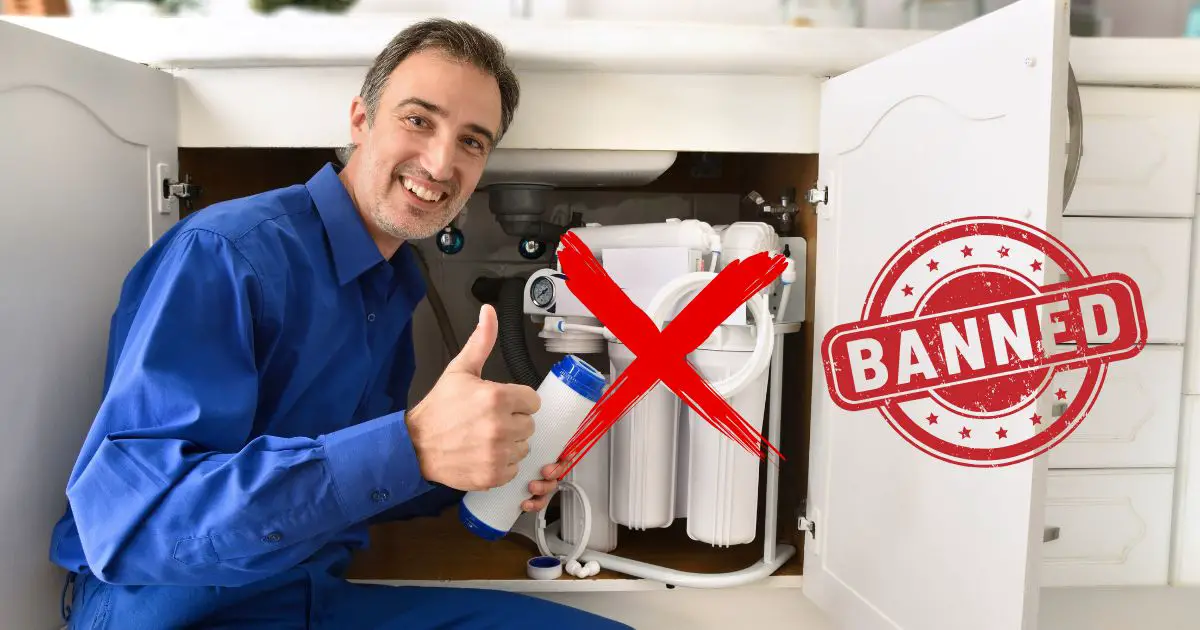What is Reverse Osmosis (RO) Water?
Reverse osmosis (RO) is a filtration process that removes contaminants from water by forcing it through a semi-permeable membrane. This process effectively eliminates:
🔹 Heavy metals (lead, mercury, arsenic)
🔹 Bacteria and viruses
🔹 Dissolved salts and minerals
🔹 Chlorine, fluoride, and nitrates
Because of its high purification efficiency, RO water is used for drinking water, industrial processes, and even medical applications.
Is RO Water Banned in Europe?
🚫 NO, RO water is NOT banned in Europe. 🚫
However, there are strict regulations concerning water quality, and some concerns about RO water in certain regions. Let’s break down the confusion:
Why Do People Think RO Water is Banned?
There are a few reasons for this misunderstanding:
1️⃣ Strict European Drinking Water Regulations – The European Union (EU) Drinking Water Directive ensures that drinking water contains adequate minerals. RO water removes minerals, so it often needs remineralization to meet EU standards.
2️⃣ RO Systems Were Banned in Some Countries Due to Water Wastage – Some places restricted or discouraged RO systems because they waste water. For example, India banned certain RO systems in regions with water scarcity, but this does NOT apply to Europe.
3️⃣ Concerns About Demineralized Water – Some health experts argue that drinking completely demineralized water (like pure RO water) isn’t ideal for human consumption. This has led to debates, but NOT an outright ban.
The Official EU Stance on RO Water
✅ The European Union Drinking Water Directive (98/83/EC) ensures that tap water in member states is safe, high-quality, and contains essential minerals.
✅ RO water is not illegal, but it must meet EU drinking water standards. This means it may need remineralization before distribution.
✅ Some municipal water suppliers prefer alternative filtration methods that retain natural minerals, but this is a preference, not a ban.
Country-Specific Rules on RO Water
Some countries have their own strict policies on water purification:
🇫🇷 France: Certain RO water purifiers were banned in 2017 due to concerns about demineralization. This restriction applies to some domestic RO systems, not all RO water.
🇩🇪 Germany: The country has very strict water standards that encourage using natural mineral water. However, RO water is still used in industries and households with remineralization.
🇬🇧 United Kingdom: The UK allows RO filtration, but emphasizes balanced mineral content in drinking water. Many RO systems come with remineralization filters.
🔹 Other European Countries: Most EU nations permit RO filtration, as long as the water meets minimum mineral content requirements.
Health Concerns About RO Water
While RO filtration removes harmful contaminants, it also removes beneficial minerals, which has raised concerns among health experts.
Does RO Water Lack Essential Minerals?
Yes, RO systems remove minerals like calcium, magnesium, and potassium. However, this isn’t necessarily harmful because:
🔹 Most people get minerals from food, not water.
🔹 RO water can be remineralized by adding essential minerals back.
🔹 Many bottled water brands use RO purification and add minerals back.
Does RO Water Affect pH Balance?
RO water is slightly acidic (pH ~5.5-6.5) because it lacks minerals. Some people worry this can:
🔹 Affect bone health – But no solid scientific evidence supports this.
🔹 Increase acidity in the body – However, the body regulates its own pH balance naturally.
✅ Solution: Adding minerals raises pH and improves taste.
Environmental Concerns About RO Systems
One major reason some European authorities discourage RO systems is their high water waste.
How Much Water Does RO Waste?
💧 Traditional RO systems waste 3-4 liters for every 1 liter of purified water. This makes them less efficient compared to other filtration methods.
Is RO Water Sustainable?
🌱 Some European countries are focusing on eco-friendly water treatment. This is why municipal water suppliers often avoid RO in favor of natural filtration methods that waste less water.
✅ Newer RO systems have wastewater recycling and low-waste membranes, making them more sustainable.
Alternatives to RO Filtration in Europe
Since RO water is not banned but comes with some concerns, many European countries promote alternative filtration methods:
1. Activated Carbon Filters
🔹 Removes chlorine, VOCs, and some heavy metals.
🔹 Retains essential minerals.
🔹 Used in municipal water systems.
2. Ultrafiltration (UF) Systems
🔹 Filters bacteria and viruses but keeps minerals.
🔹 Less water waste than RO.
🔹 Used in advanced water purification plants.
3. Mineralized RO Systems
🔹 RO filters that add back minerals like calcium and magnesium.
🔹 Maintains EU drinking water standards.
🔹 Available in European markets.
Conclusion: RO Water is NOT Banned in Europe
🚫 RO water is NOT banned in Europe, but there are strict regulations to ensure safe and mineral-rich drinking water.
🔹 Some countries prefer alternative filtration methods to reduce water waste.
🔹 RO systems with remineralization meet EU drinking water standards.
🔹 Newer eco-friendly RO systems are gaining popularity.
If you use RO filtration, consider adding minerals back to your water and choosing low-waste RO models.
Would you like recommendations on the best RO systems in Europe? Let me know! 💧🌍
